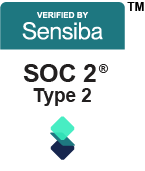Everybody hates passwords — and, well, they should.
The data is clear: stolen credentials are the number one way fraudsters break into businesses. And if you’re in private markets, the stakes are even higher, as attackers target you 300x more than other industries.
Why? Because they know you’re coordinating hundreds of investors, navigating tons of bank portals, and making frequent high-value transactions, in an often-times frenetic, time-pressured process that is susceptible to human errors and work-arounds that can be exploited.
Passwords undermine security.
Passwords are simply too painful. They’re hard to create, hard to remember, and high-friction to use. The result?
Humans take shortcuts that undermine the security passwords were meant to provide. We reuse them. We jot them down. We make lazy variations.
If your defense rests on a password, you’re betting the firm on a shared secret that hackers can:
- Replay — log in as an authorized user and reset credentials to lock real users out
- Phish — trick users into entering credentials on a fake page
- Stuff — try credentials from a breached site everywhere
- Brute-force — guess credentials at scale when rate limits are weak
Today, moving money in private markets is a maze of portals and passwords. When a PE firm calls capital, each LP must log into a firm portal for instructions, then into a bank portal to wire funds. Meanwhile, CFOs and fund administrators juggle multiple bank portals across multiple funds — each one demanding yet another password.
Every password adds friction and creates vulnerabilities. Transactions worth millions are still routed through 1800s-era wire technology, authenticated only by account numbers and passwords. These outdated methods don’t verify who is on the other end, leaving the “last mile” wide open.
The result? Sensitive capital calls, distributions, and deal payments are exposed to escalating fraud risks. Fraudsters know private equity is a high-value target — and they’re watching for any opening.
Biometrics change the game.
Unlike passwords, biometrics can’t be phished, reused, or guessed. Using your fingerprint or face isn’t just easier — it’s stronger. Because biometrics feel frictionless, people use them naturally and consistently.
When you unlock your phone with a glance or touch, you’re already living the model private markets need in the age of AI: seamless, reliable identity verification that strengthens security by elevating the user experience.
Monitoring closes the loop.
Today, verifying identity isn’t a one-time check — it’s an ongoing practice including analysis of data signals to differentiate anomalies from normal behaviors.
When your credit card throws a fraud alert on that random 3 a.m. electronics spree but lets your usual grocery run sail through, you’re seeing the power of real-time monitoring. Shouldn’t private equity firms have the same kind of protection around high-value capital calls and distributions?
To create transaction security, private markets need both identity verification plus ongoing monitoring in which every transaction is risk-scored against context and behavior, so anomalies trigger safeguards before funds move.
How 6lock locks fraud out — and value in.
This is exactly why we built 6lock. Private markets can’t afford to rely on passwords, account numbers, and bank portals designed in another century. They can’t allow unstructured data and PII to be passed around in email or stored in spreadsheets that can be lifted without anyone knowing there’s been a breach.
With 6lock, firms transact inside a secure network where:
- Every participant is verified biometrically and continuously monitored.
- Device, location, and behavioral signals are monitored to catch anomalies.
- Each transaction is risk-scored in real time so out-of-pattern actions trigger step-up protections.
- Every flow is transparent, with reference data, role-based approvals, and automated reconciliation built in.
The bottom line: It’s well past time to move beyond password-only protection for private equity’s high value transactions. Passwords were never enough — and we know they’re the favorite, low-hanging fruit attack vector for fraudsters.
The future of money movement is identity-centric.
6lock is purpose-built so fund administrators can create secure, invitation-only transaction networks for their private equity clients. On 6lock, every identity is verified, all stakeholders get the ease and security of biometric access, and behavior signals are continuously monitored to lock value in — and lock fraud out.
.svg)
.svg)











.svg)